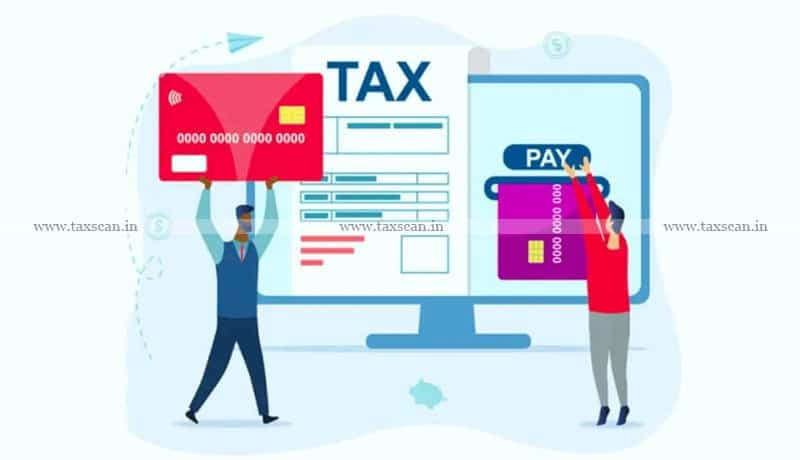Credit cards and tax payments

Hey there! Ever found yourself pondering over the convenience of using your credit card for tax payments? Well, you're not alone. It's a hot topic, especially when the tax season is breathing down our necks.
Today, we're diving deep into the world of settling your tax dues with plastic money. Yes, it's legal, possible, and even potentially rewarding. But, just like that extra slice of pizza, it comes with its own set of considerations.
From the pros and cons of paying taxes with credit to earning rewards on tax payments, and not forgetting the strategies for large tax bills, we've got a comprehensive guide to navigate this maze. Let's get into it!
The Basics of Tax Payments
So, let's start with the basics. Tax payments, the annual ritual where we settle our dues with the government. Whether it's income tax, property tax, or any other form, the goal is to stay on the right side of the law.
Now, the million-dollar question: Why consider your credit card for this? It's simple. Depending on your card, you can earn rewards, manage cash flow better, and in some cases, even delay the pain of payment slightly.
However, it's not all rainbows and butterflies. Remember, the IRS or your local tax authority often charges a processing fee for the luxury of using your credit card. Plus, there's the matter of interest if you don't pay off your balance in time.
To dive deeper, here's a great read on paying taxes with credit: pros and cons.
Earning While Paying
Let's talk about a brighter side for a moment – earning rewards. Yes, some folks literally get cashback, points, or miles for paying off their dues. Talk about making the best out of a sticky situation!
Imagine earning enough points for a short vacation or a decent cashback just by clearing your tax bill. It's a smart way to maximize benefits from an inevitable expense.
Interested in this angle? Check out more on earning rewards on tax payments.
Bigger Bills, Bolder Strategies
If you're staring down a hefty tax bill, fear not. There are strategies out there designed to ease the burden without wreaking havoc on your finances.
From installment agreements to personal loans and, of course, the right use of credit cards, you've got options. Choosing the right path can save you stress and money.
Curious? Learn more about handling sizeable obligations with strategies for large tax bills.
The Dark Side of Convenience
It's not all sunshine in the land of credit card tax payments. High fees and the potential for hefty interest rates lurk in the shadows. If you're not careful, you could end up paying significantly more than your original bill.
Moreover, there's a risk to your credit score. High card balances can affect your credit utilization ratio, a key factor in credit scoring.
FAQ
It's natural to have questions, and we're here to answer them. Here we go with a quick Q&A session.
{FAQ}
{FAQ_ITEM}
{FAQ_TITULO}Can I pay any type of tax with my credit card?{/FAQ_TITULO}
{FAQ_CONTEUDO}Generally, yes. Most federal and state taxes can be paid with a credit card, including income tax and property tax. However, the acceptance of credit card payments may vary by municipality or specific tax type.{/FAQ_CONTEUDO}
{/FAQ_ITEM}
{FAQ_ITEM}
{FAQ_TITULO}Are there any drawbacks to paying my taxes with a credit card?{/FAQ_TITULO}
{FAQ_CONTEUDO}Yes, the main drawbacks include processing fees imposed by payment processors, which can add to your tax bill, and the potential for high interest if you carry a balance on your card.{/FAQ_CONTEUDO}
{/FAQ_ITEM}
{FAQ_ITEM}
{FAQ_TITULO}How can I minimize costs when paying taxes with my credit card?{/FAQ_TITULO}
{FAQ_CONTEUDO}To minimize costs, look for a credit card that offers rewards which offset the processing fee, and ensure you can pay off the balance before interest accrues.{/FAQ_CONTEUDO}
{/FAQ_ITEM}
{/FAQ}
Wrapping Up
There you have it, a no-stone-left-unturned guide on using your credit card for tax settlements. While it offers convenience and potential rewards, it's essential to approach this option with caution.
Assess your financial situation, consider the fees, and most importantly, don't spend rewards before you earn them. Making informed decisions is key to navigating the taxing waters of... well, taxes.
Remember, when it comes to finances, the best approach is always a well-thought-out plan. Happy tax paying!

Related